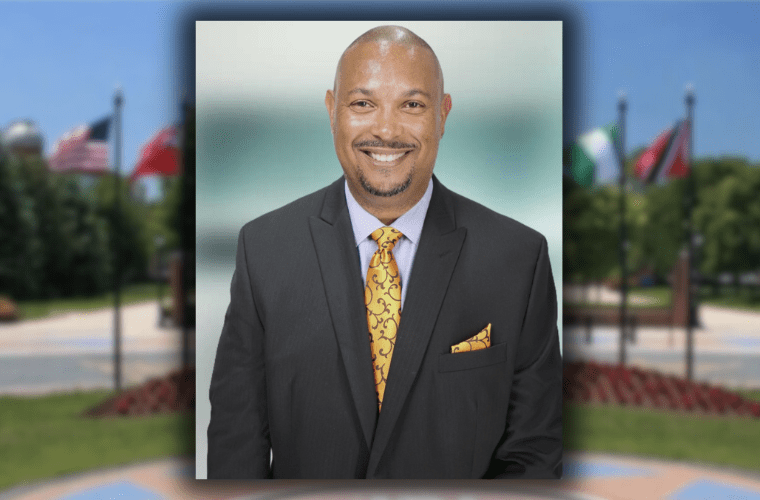
Bank of America’s Don Gordon spent 15 months are DSU working mostly in the Office of Career Services.
Don Gordon, a senior vice president of Bank of America, put his day job on hold for 15 months to help thousands of Delaware State University students land full-time jobs.
Bank of America’s Leader on Loan program pairs key bank leaders with local nonprofit organizations and educational institutions with the goal of establishing sustainable growth in a specific community.
Spending over a year away from his day-to-day job, Gordon said he not only had the opportunity to give back to the community and create pathways for success for young Delawareans, but he discovered some things about himself.
“I learned a lot about some of the skillsets I haven’t had the opportunity to use in a long time,” he said. “There’s a lot of value and experience to share with young people that are going to be going through those same experiences I’ve gone through and just letting them know what to expect and some of the changes in corporate America from when I first started my career.”
At DSU, a top-rated Historically Black College and University, Gordon spent most of his time working in the Office of Career Services.
Along with one-on-one meetings with students to help with career development, Gordon organized career fairs and also spent time in classrooms to help walk students through the opportunities that the career services office has to offer.
Don’s tenure marked the program’s first expansion into Delaware.
Luis Santiago was the other Delawarean to pilot the Leader on Loan program. Santiago worked with the Delaware IT Industry Council where he supported the development of a robust and flexible IT talent training system while strengthening the diversity of IT talent by enhancing the opportunities for under-represented populations and rural communities in Delaware.
At DSU, Gordon worked with students to build career readiness and worked with faculty to improve systems for serving students across the university’s various colleges and departments.
He also led a series of job expos that grew steadily in popularity throughout the pandemic.
This year, one recruitment event he helped organize had to be moved to the university gymnasium to accommodate more than 700 students and 130 companies that turned out to speak with students about career opportunities.
Some of the resources he worked through with students include résumé review, mock interviews, cover letters and more.
“The young people today have a lot of tools available to them for support, and I think because of technology and because of their knowledge of technology, they kind of lean towards that a little bit more,” he said.
“I had that really great opportunity to work with a lot of students face-to-face, talking about where they were in their lifecycle and from a schooling perspective, what they wanted to do when they graduated, what their interests were, how they were going about preparing themselves for the next stage of their life.”
The conversations between Gordon and lower-classmen differed from those with upper-classmen, he said.
“With freshmen and sophomores, we talked about ensuring that they had the right curriculum, that they were looking into internship opportunities, understanding what their interests were and if they chose the right major,” he said.
A lot of the work with older students focused on establishing how they would obtain full-time jobs and begin their career.
“Eventually they’ll start their adulting life in the state of Delaware,” Gordon said. “We know that there are a lot of job opportunities in the state, so we want to make sure that those young people are ready to take on that challenge and contribute to the workforce.”
It’s crucial that Delaware’s youth take advantage of the countless resources that might not have been available decades ago, he said.
“They’re no good if you can’t utilize them or if you don’t understand what’s available to you,” he said.
For himself, he said, “Being able to give back and to be not only a vehicle for mentorship, but being able to share experiences that I’ve had over the past 24 years was invaluable.”

Raised in Doylestown, Pennsylvania, Jarek earned a B.A. in journalism and a B.A. in political science from Temple University in 2021. After running CNN’s Michael Smerconish’s YouTube channel, Jarek became a reporter for the Bucks County Herald before joining Delaware LIVE News.
Jarek can be reached by email at [email protected] or by phone at (215) 450-9982. Follow him on Twitter @jarekrutz
Share this Post




